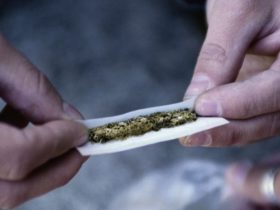Risk for insomnia even higher for those with depression or anxiety
By Lori Solomon HealthDay Reporter
TUESDAY, Feb. 13, 2024 (HealthDay News) — There is a substantial burden of insomnia among nonhospitalized COVID-19 survivors, according to a study published online Feb. 4 in Frontiers in Public Health.
Huong Thi Xuan Hoang, Ph.D., from Phenikaa University in Hanoi, Vietnam, and colleagues assessed the prevalence of insomnia and identified its association with depression and anxiety among nonhospitalized participants who recovered from COVID-19. The analysis included 1,056 COVID-19 survivors evaluated within six months of initial COVID-19 infection.
The researchers found that the prevalence of insomnia was 76.1 percent, and among those with insomnia, 22.8 percent had severe insomnia. One-third of participants reported that after COVID-19 infection, sleep quality was worse, sleep duration was shorter, and falling asleep was harder, while half reported more awaken nights after COVID-19 infection. The risk for insomnia was more than tripled for participants with depressive (odds ratio, 3.45) or anxiety (odds ratio, 3.93) symptoms. Preexisting chronic conditions and higher education level were also risk factors for insomnia. There were no associations observed between insomnia and COVID-19 symptoms or duration.
“Since this is a cross-sectional study, the relationship of anxiety and depression with insomnia cannot be fully investigated,” Hoang said in a statement. “In addition, collecting data online and a convenience sampling method can cause recall bias and selection bias. However, due to the situation in Vietnam at that time, collecting data via electronic invitation and convenience sampling was the most efficient and feasible strategy.”
Copyright © 2024 HealthDay. All rights reserved.







